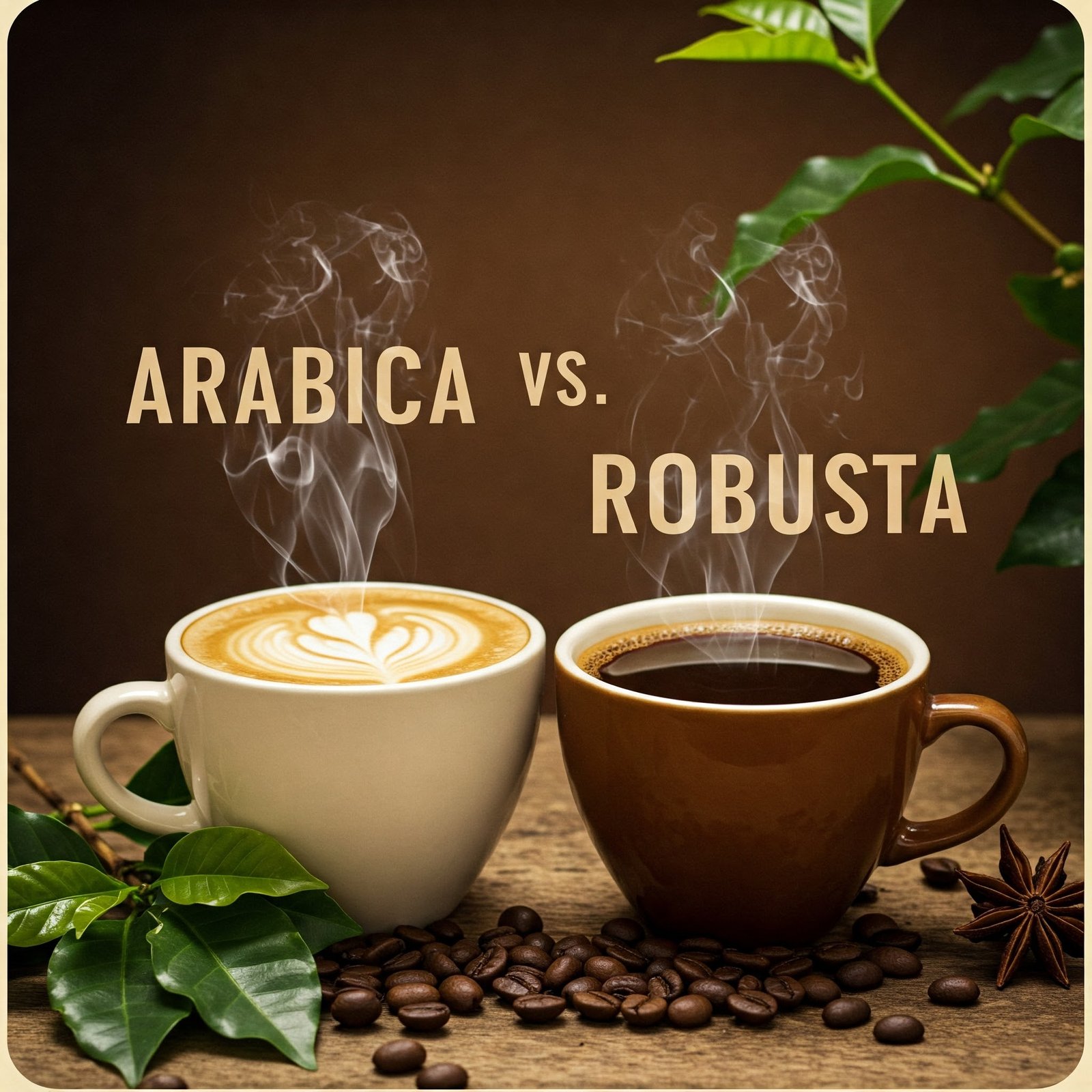Picture this: two sacks of green coffee beans in front of you. One is Robusta — dark, tough, high in caffeine. The other, Arabica — delicate, aromatic, grown high in the mountains. Both have value. But which one truly delivers the flavor, quality, and sophistication your roastery aims for?
According to the Brazilian Coffee Industry Association, Arabica accounts for around 70% of national coffee production and is widely preferred in specialty markets. Robusta (also known as Conilon in Brazil) plays a key role in commercial blends and instant coffee industries.
In this guide, you’ll discover the key differences between Arabica and Robusta — from cultivation to flavor profile — and understand which one aligns best with the level of excellence your brand wants to represent.
What Are Arabica and Robusta Coffees?
Origin and Botanical Characteristics
Coffea arabica and Coffea canephora (Robusta/Conilon) are two distinct coffee species. Arabica plants are more delicate, grown in high altitudes with cooler climates. Robusta is more resistant to pests and thrives in hotter, lower areas.
Where They’re Grown in Brazil
- Arabica: Minas Gerais, São Paulo, Bahia, Paraná
- Robusta (Conilon): Espírito Santo, Rondônia, parts of Bahia
Quality and Flavor Profile Differences
Acidity, Body, and Aroma
- Arabica: Bright acidity, medium body, floral and fruity aroma
- Robusta: Low acidity, strong body, earthy and woody notes
Typical Uses in Roasting and Blends
Robusta is often used in commercial blends for its strong body and cost-effectiveness. Arabica shines in specialty coffee and gourmet markets due to its complex and refined flavors.
Market Value and Brand Positioning
Arabica is more valued globally for its cup quality and versatility, making it ideal for brands focused on experience and storytelling. Robusta, on the other hand, is favored in large-scale production for its affordability and higher caffeine content.
When to Choose Robusta Coffee
Best for Commercial Blends
If you’re targeting volume and cost-efficiency, Robusta delivers. It adds texture and intensity to blends, especially for espresso and dark roasts.
Higher Resistance and Productivity
Robusta plants are more resistant to pests, heat, and disease, making them more stable for mass production, especially in lower altitudes.
Why Arabica Is the Favorite of Specialty Roasters
Superior Taste and Complexity
Arabica coffee offers floral, fruity, and chocolatey notes with a clean finish and layered flavor experience. Ideal for filter methods and single-origin showcases.
Specialty Coffee Potential
If you’re sourcing microlots, direct trade, or traceable beans with character — Arabica is essential. It delivers terroir expression and storytelling value.
How to Identify Quality Arabica for Your Roastery
- Look for high-altitude cultivation (above 800 meters)
- Request cupping notes and sensory evaluations
- Check for traceability and harvest transparency
- Partner with producers who share their process and values.
Conclusion: Which Coffee Should You Choose to Make Your Brand Stand Out?
If your roastery or coffee business aims to stand out in quality, create memorable customer experiences, and build long-term trust — Arabica is the way to go. It not only delivers complexity and depth but also higher perceived value, which matters in competitive markets.
Frequently Asked Questions (FAQ)
1. Is Robusta lower quality than Arabica?
Not necessarily — it depends on the intended use. Robusta is excellent for body and caffeine. Arabica excels in complexity and aroma.
2. Can I blend both?
Yes! Many roasters use a balanced blend of Arabica and Robusta to create signature espresso profiles with crema and strength.
3. Is Arabica always more expensive?
Generally, yes — due to more delicate cultivation and cup quality. But the return on brand positioning and flavor experience is often worth it.
4. Are there high-quality Robustas?
Yes, though rare. Some fine Robustas are emerging, but Arabica still dominates the specialty scene.
5. Do you roast your coffee?
No, we’re producers — we focus on growing high-quality Arabica and sharing our process directly from the farm.



